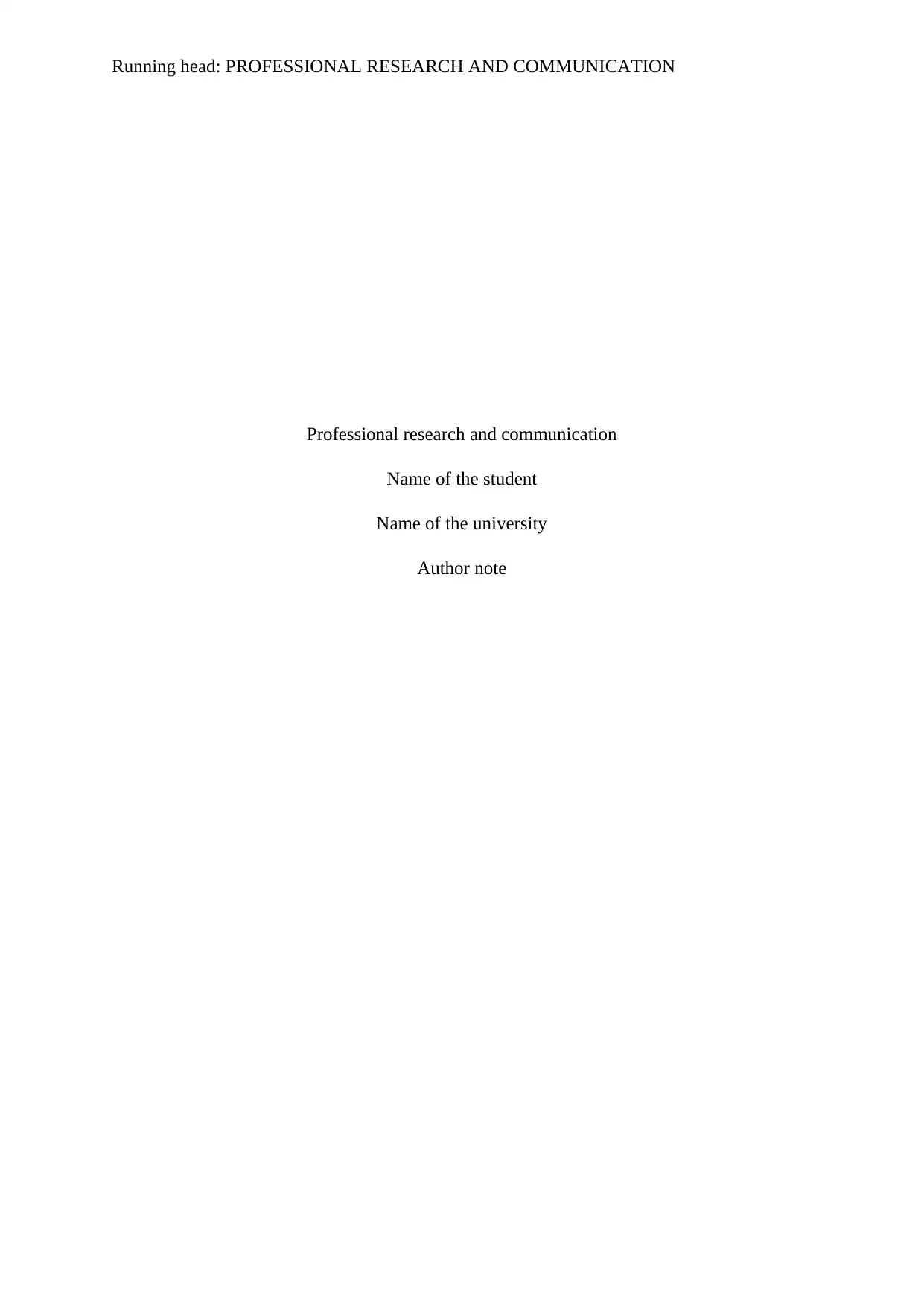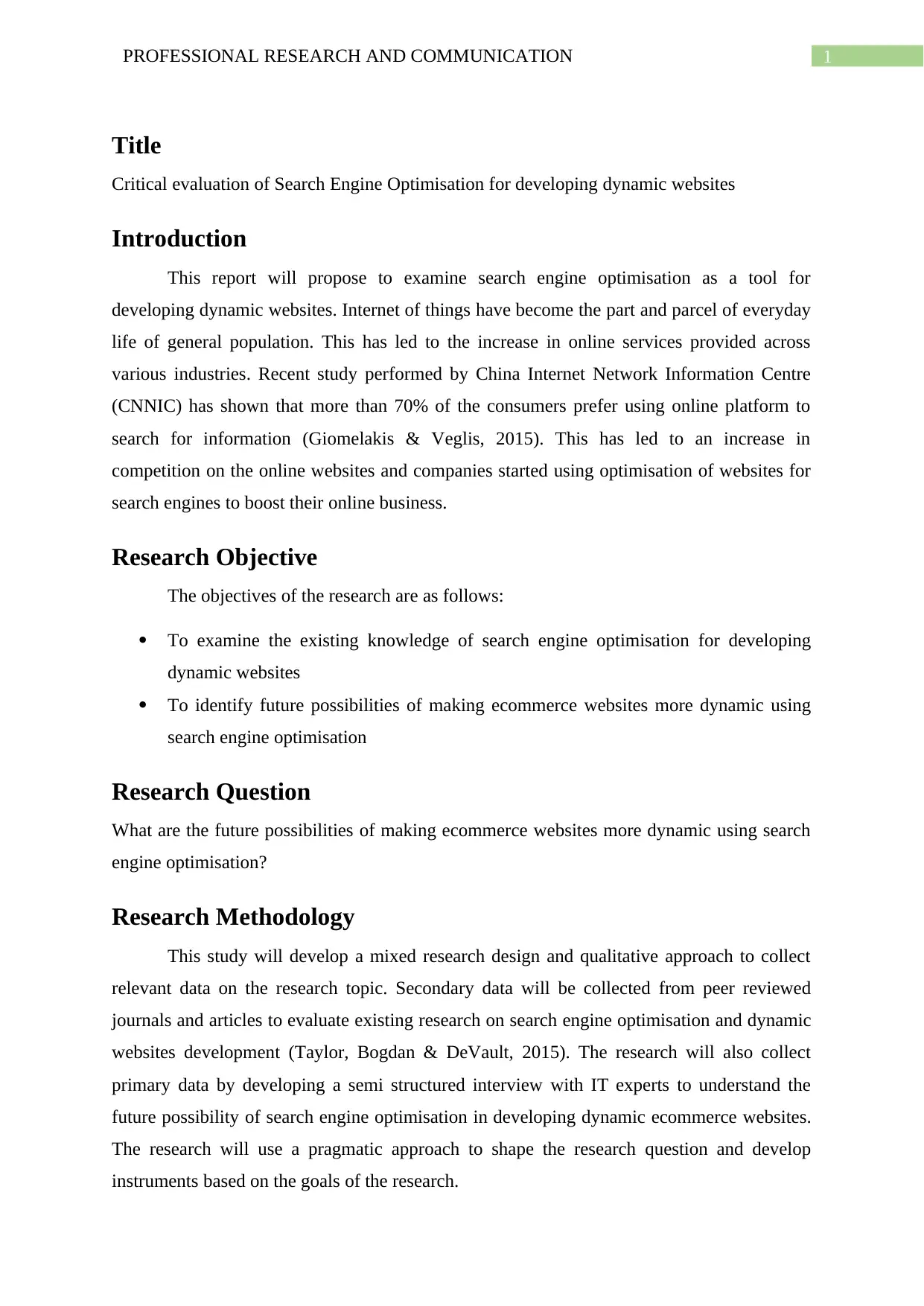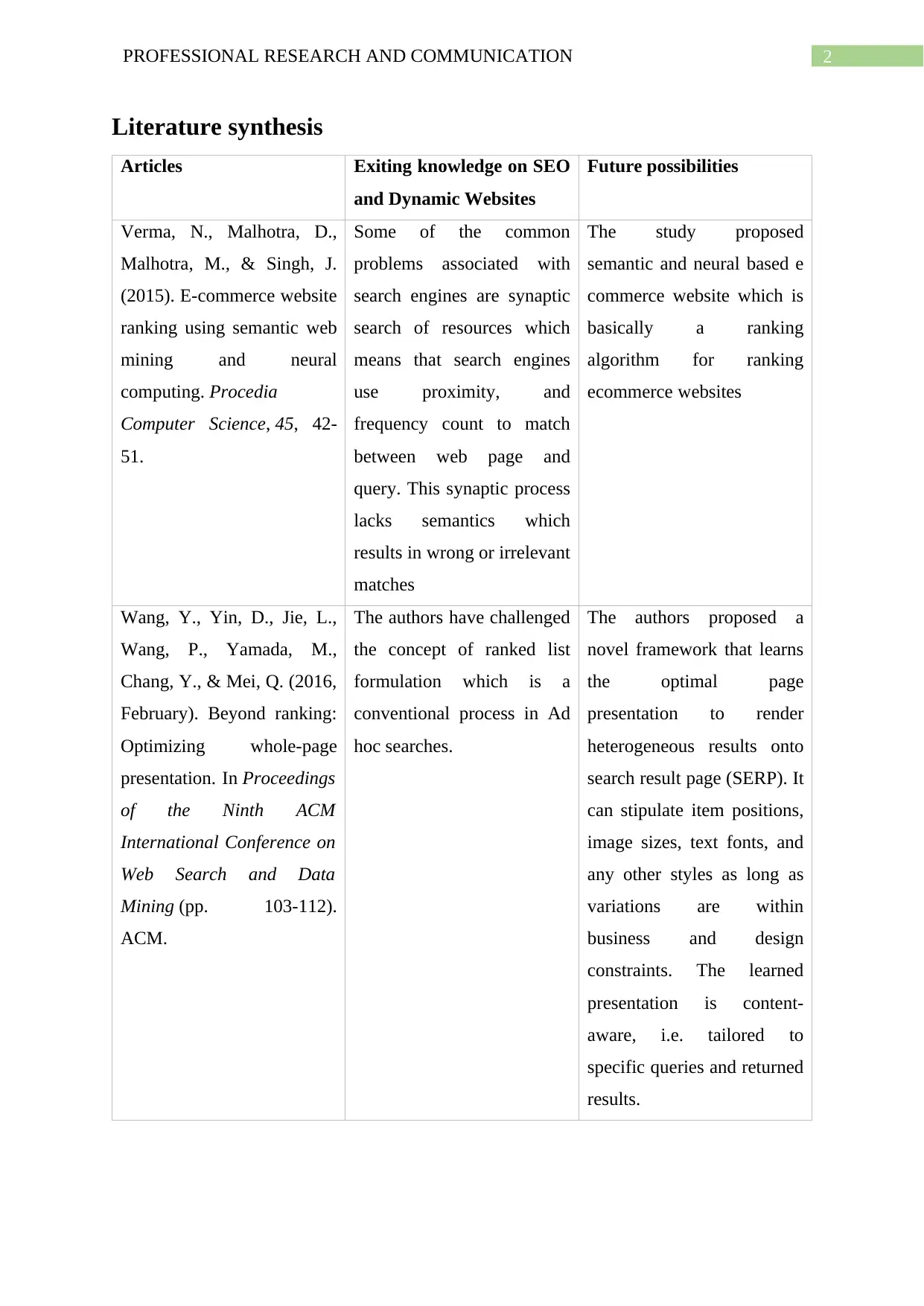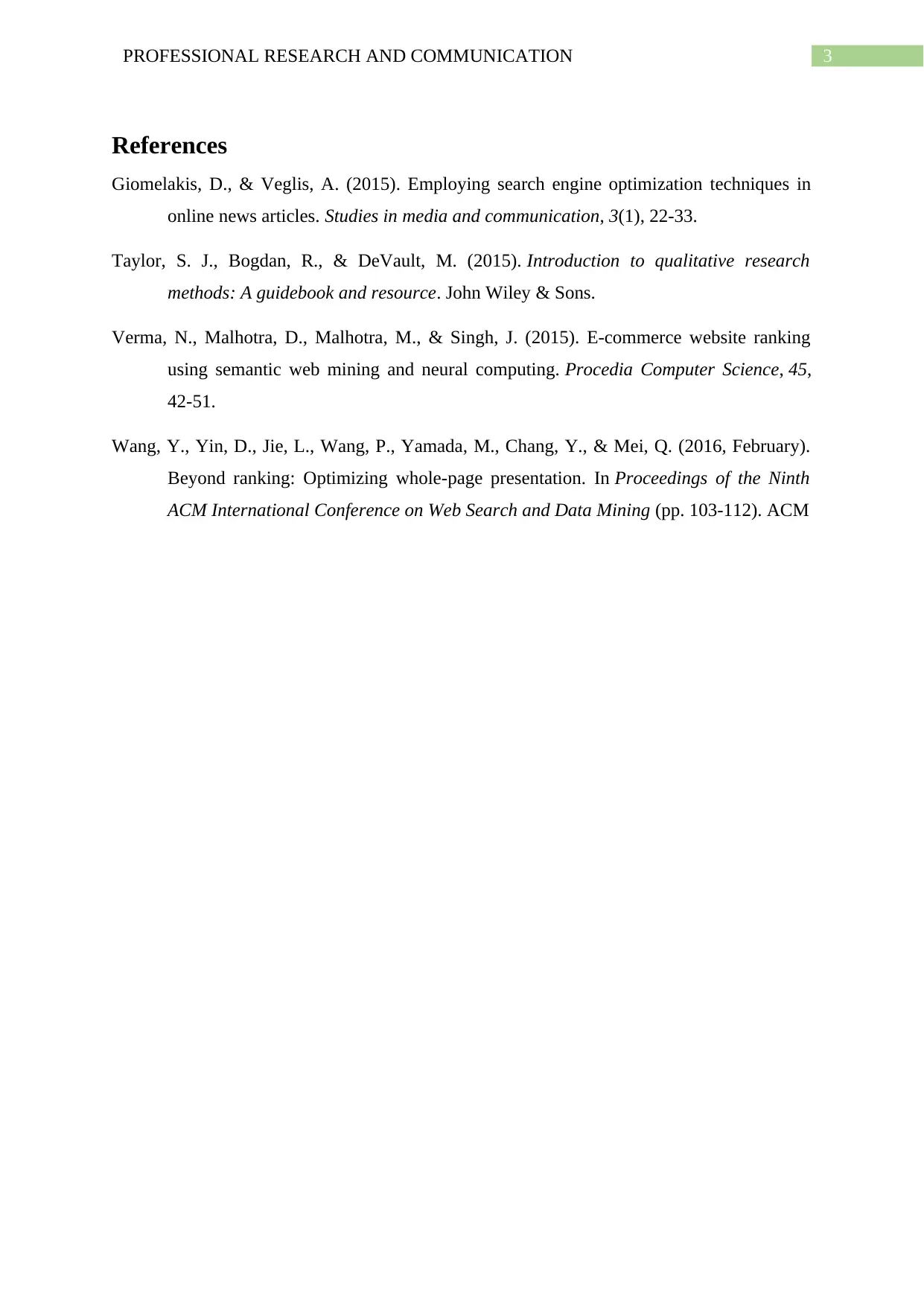Professional Research and Communication: SEO for Dynamic Websites
VerifiedAdded on 2022/09/27
|4
|762
|21
Report
AI Summary
This report presents a critical evaluation of Search Engine Optimization (SEO) for developing dynamic websites, focusing on the application of SEO techniques to enhance website performance and online presence. The research begins with an introduction highlighting the increasing importance of online platforms and the subsequent competition among websites, emphasizing the role of SEO in boosting online business. The report's objectives include examining existing knowledge of SEO for dynamic websites and identifying future possibilities for making e-commerce websites more dynamic. The research employs a mixed research design and qualitative approach, utilizing secondary data from peer-reviewed journals and articles, along with primary data gathered through semi-structured interviews with IT experts. The literature synthesis examines existing knowledge on SEO and dynamic websites, including semantic web mining, neural computing, and the optimization of whole-page presentation. The report synthesizes key findings from relevant articles to address the research question regarding the future possibilities of making e-commerce websites more dynamic using SEO.
1 out of 4










![[object Object]](/_next/static/media/star-bottom.7253800d.svg)